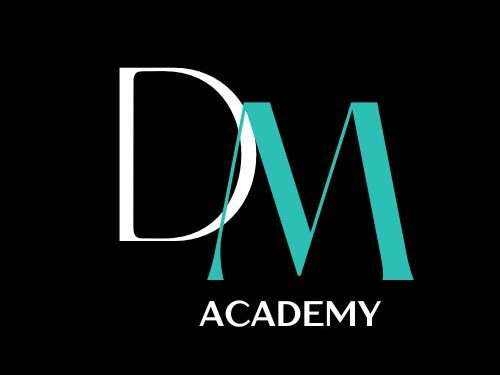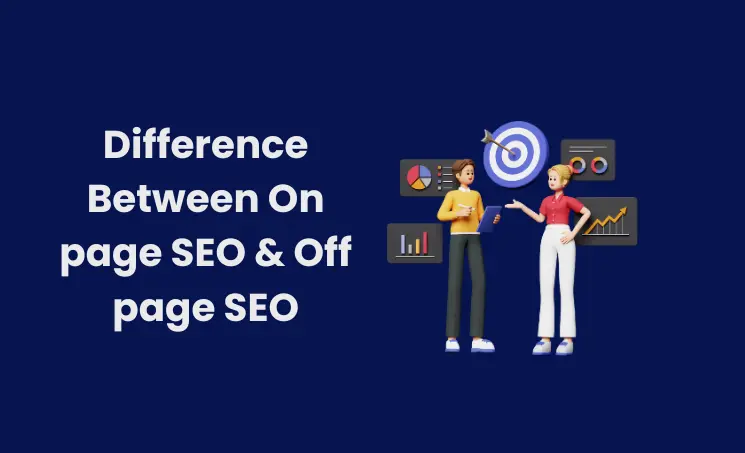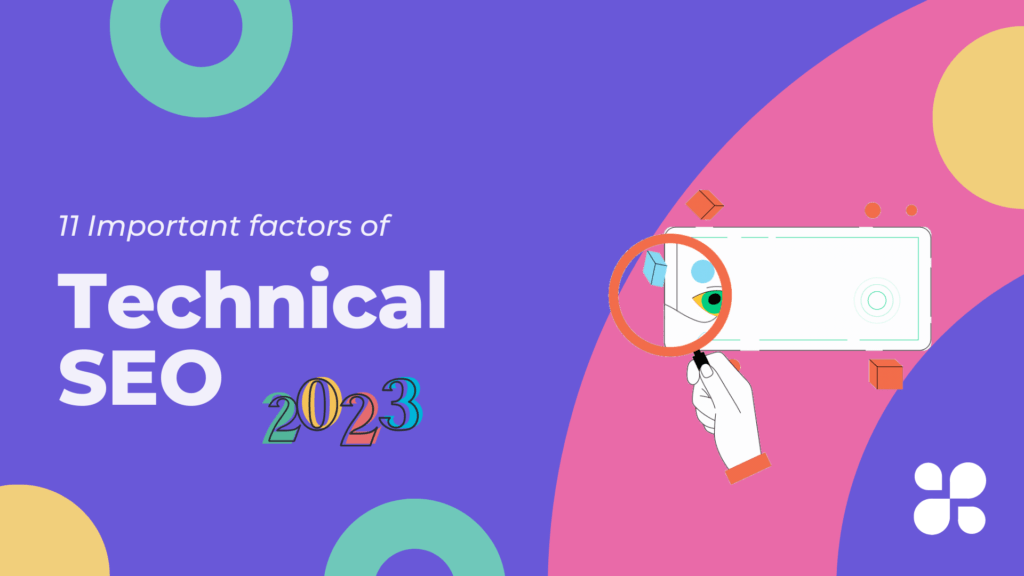Introduction
Search engine optimization (SEO) is key for businesses wanting their websites to rank higher in search engines and drive more relevant organic traffic. The two main components of SEO are on-page & off-page optimization. Understanding the difference between the two and how they work is essential for effective SEO. This article will provide an overview of on-page and off-page SEO and the key differences between them.
Key Difference Between On Page SEO and Off Page SEO
While both on-page and off-page SEO collectively work together to improve search visibility, there are some notable differences between the two approaches:
Control
On-page SEO refers to optimizations on one’s own website, so full control rests with the site owner. But off-page SEO relies on other websites agreeably providing backlinks, which is outside one’s control.
Intent
On-page SEO signals search engines about a page’s relevance for target keywords. Off-page SEO indicates external trust and authority.
Visibility
On-page SEO improvements and issues can be easily diagnosed using view source or inspect tools. But off-page SEO metrics are largely invisible and rely on search engine provided data.
Timeline
On-page SEO changes can be implemented instantly and reflect faster in search performance. But off-page SEO requires slow, natural link building over months.
Volatility
On-page SEO generally produces consistent results if the content stays the same. But off-page SEO varies more easily, like if external links get removed.
Metrics
On-page SEO has specific metrics like page speed, mobile friendliness, meta tags etc. But off-page SEO is harder to monitor and quantify through available data.
Durability
On-page SEO investments last for as long as that content remains on site. Off-page SEO can lose its gains if external sites remove their backlinks someday.
In summary, on-page SEO provides more instant, controllable and measurable results while off-page SEO creates long-term authority but depends greatly on external factors.
Some key on page SEO Factors
-
- Page title tags – Concise, keyword-rich page titles help pages rank for those searches.
-
- Meta descriptions – Short summaries of the page in about 160 characters.
-
- Headers tags – Header elements H1 to H6 to structure page content appropriately.
-
- Content – The actual written content on the page, ideally well-written and useful for visitors.
-
- Image optimization – Relevant alt text and file names for images on the page.
-
- URL structure – Search engine friendly URLs without excessive parameters or numbers.
-
- Page speed – Faster loading pages enhance user experience.
-
- Mobile optimization – Making content easy to access on mobile devices.
-
- Internal links – Links between related pages within a website.
With on-page optimization, the focus is solely on elements within that single page to make it more relevant for specific keyword searches.
Some important off page SEO Factors
-
- Backlinks – Getting quality websites to link back to your pages.
-
- Social signals – Getting content shared socially boosts visibility.
-
- Brand mentions – Being mentioned on relevant sites establishes authority.
-
- Reviews and testimonials – External validation builds trust.
-
- Forum participation – Engaging with related communities.
-
- Link velocity – Natural link building over time.
-
- Link diversity – Links from various sites, not just a few domains.
Off-page SEO helps make a website appear more reputed through external references. It relies on other sites willingly linking back.
Best Practices for On Page SEO
Here are some proven best practices for optimizing on-page SEO:
-
- Conduct keyword research to identify high-volume and low competition search terms relevant to your content.
-
- Incorporate keywords naturally in page titles, headings, meta descriptions, image names and alt text. Avoid over-optimization.
-
- Create useful, original content that answers search intent rather than just targeting keywords.
-
- Make content scannable with relevant subheadings (H2, H3 tags).
-
- Optimize page speed by compressing images, minimizing redirects, enabling caching etc.
-
- Ensure website is mobile-friendly and content is easy to read on mobile.
-
- Include structured data markup to provide additional information about the page to search engines.
-
- Maintain a healthy internal link structure to pass authority between related pages.
-
- Fix any broken links and redirect changed URLs properly through 301 redirects.
-
- Analyze how well pages rank for target terms and tweak on-page elements accordingly for better results.
Focusing on these on-page SEO best practices will directly lead to better search visibility through enhanced content quality and relevance.
Best Practices for Off Page SEO
Some proven off-page SEO techniques include:
-
- Identify quality websites in your industry to build links from, like directories, publications, reviewers etc.
-
- Create share-worthy content assets like guides, how-tos and resources that websites will be keen to link to.
-
- Build brand reputation with guest posts, community forum participation, press mentions etc.
-
- Promote your content on social media channels to increase external shares, embeds and links.
-
- Acquire backlinks from domains with high authority scores and low spam scores.
-
- Monitor your backlinks and disavow low-quality or toxic backlinks.
-
- Build natural links slowly over months rather than instantly buying links or link schemes.
-
- Diversify anchor text of backlinks. Avoid aggressive keyword stuffing.
-
- Claim and optimize online profiles on key directories like Google My Business, Apple Maps etc.
-
- Seek expert help to identify new link building opportunities safely.
Investing in ethical, white hat link building from reputable sites takes time but builds lasting search authority and visibility.
Conclusion
On-page and off-page SEO work together to elevate a website’s search rankings, traffic and conversions. Optimizing individual page content makes those pages more findable for relevant searches. Building trusted external links makes the whole domain appear more authoritative insearch engines’ eyes. Focus on both these pillars of SEO for maximum search visibility. Keep evolving SEO strategies based on latest algorithm updates and best practices. Consistent efforts on on-page and off-page SEO will propel websites higher in competitive search rankings.
Author
-
A Digital marketing expert with 2 Years of hands-on experience in On-page SEO, Off-page SEO, and WordPress. Currently working as a SEO Interim Manager at 7Eagles. He Completed his Master Degree MBA Specializing in Marketing and Finance. He has 2 Years of work experience in Digital Marketing Field. He Handled projects in Saas, Healthcare, Finance, Real-estate. He is strong on Handling Y.M.Y.L (Your Money Your Life) Niche projects.




